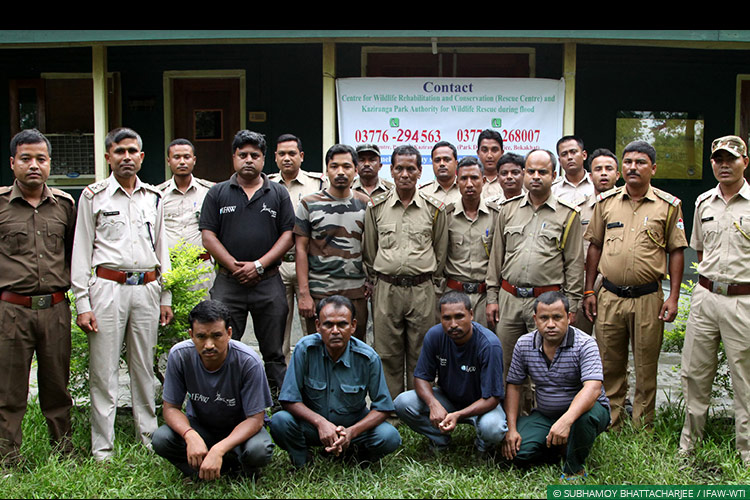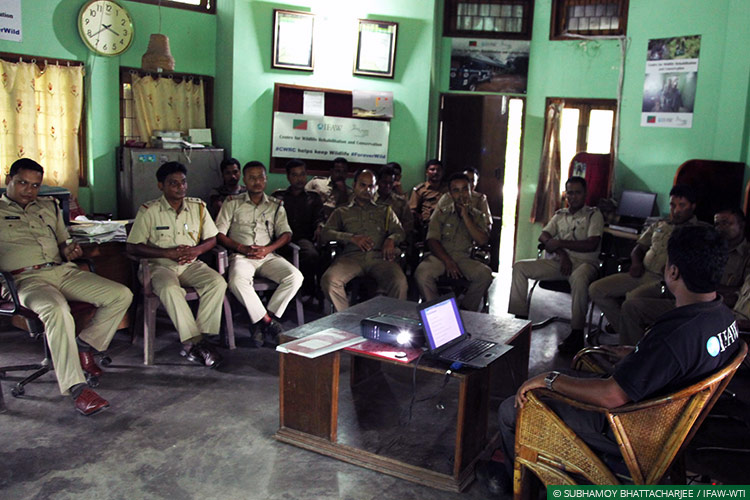 CWRC personnel and frontline forest staff at the pre-flood awareness training held on June 23
CWRC personnel and frontline forest staff at the pre-flood awareness training held on June 23
CWRC, Kaziranga National Park, June 26, 2017: A Pre-flood Awareness Training for frontline forest personnel was organised at CWRC – the Centre for Wildlife Rehabilitation and Conservation; the wildlife rescue, care and rehabilitation facility jointly run by the International Fund for Animal Welfare (IFAW), Wildlife Trust of India (WTI) and Assam Forest Department near Kaziranga National Park – on June 23.
The training, the first of its kind for forest department staff, was attended by six foresters and 10 forest guards from the Eastern, Central, Western and Burhapahar Forest Ranges of Kaziranga’s south bank boundary. Dr Panjit Basumatary, the head veterinarian at CWRC, and Dr Samshul Ali, veterinarian with the centre’s Mobile Veterinary Service, discussed basic wildlife rescue protocols with the attendees and shared case studies of previous flood rescue situations. Communications manager Subhamoy Bhattacharjee made an audio-visual presentation on the importance of engaging with local stakeholders during wildlife rescue operations. The attendees were then taken around the CWRC campus to observe the ongoing flood preparedness activities. They had the opportunity to interact with the centre’s animal keepers, which will help both sets of field personnel work cooperatively during rescue operations.
The pre-flood training, the first of its kind for forest department staff, was attended by foresters and forest guards from four Forest Ranges of Kaziranga
Assam Forest Department authorities have conveyed their appreciation for the training event to IFAW-WTI and expressed the hope that this exposure will help their frontline staff respond efficiently to wildlife emergencies during the flood crisis in Kaziranga.
The annual monsoon floods that inundate large portions of the national park are beneficial to the area’s vast wetland ecosystem, but bring in their wake widespread displacement of wildlife. This results in an increase in human-wildlife conflict and as such demands the formulation of a systematic wildlife safety plan that involves all important stakeholders, including forest department personnel and local communities. The training event for frontline forest staff was the third awareness meeting conducted at CWRC this year; the previous two events targeted youth from villages located on the fringes of Kaziranga and aimed to minimise human-wildlife conflict during the flood crisis.
 A session on basic wildlife rescue protocols underway at the CWRC office block
A session on basic wildlife rescue protocols underway at the CWRC office block